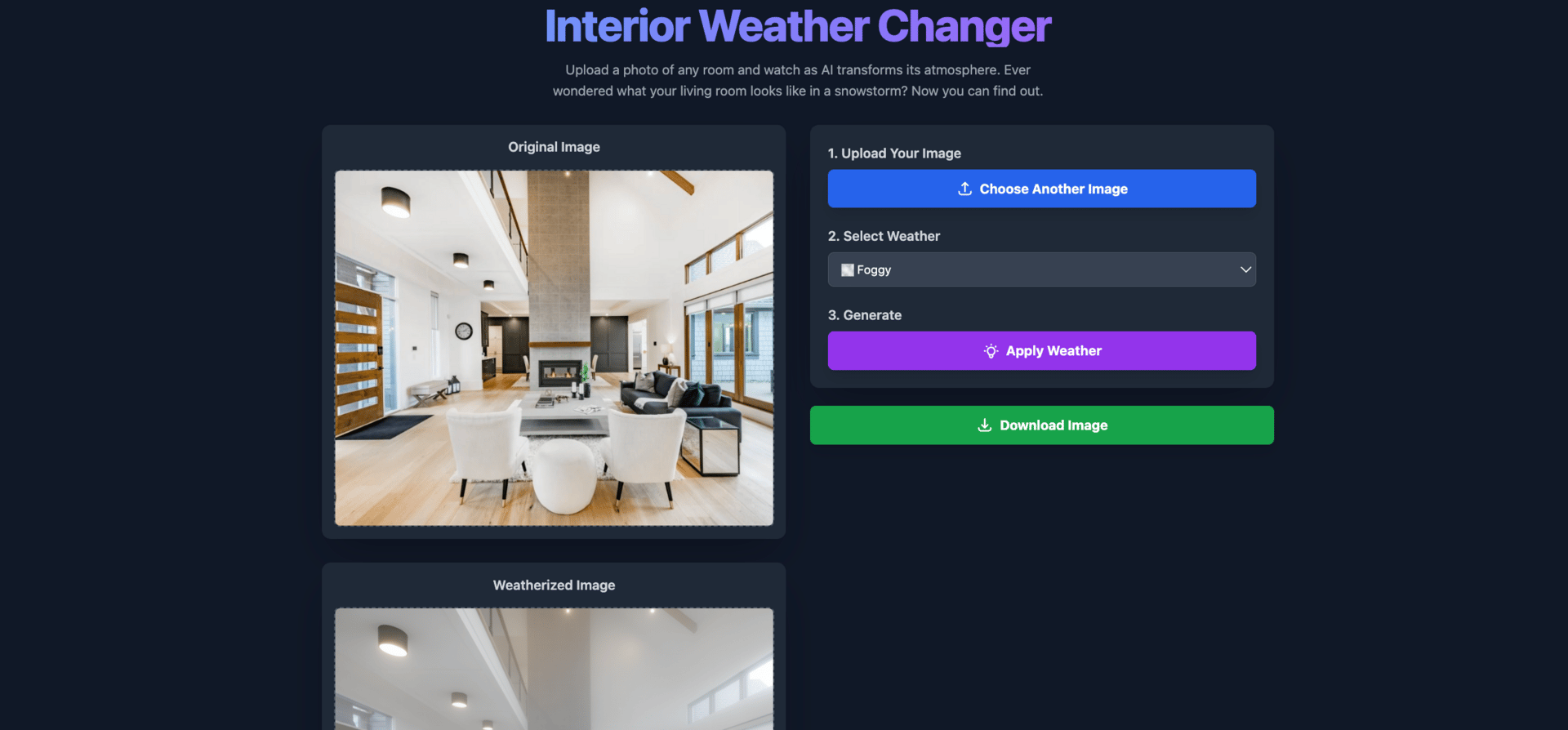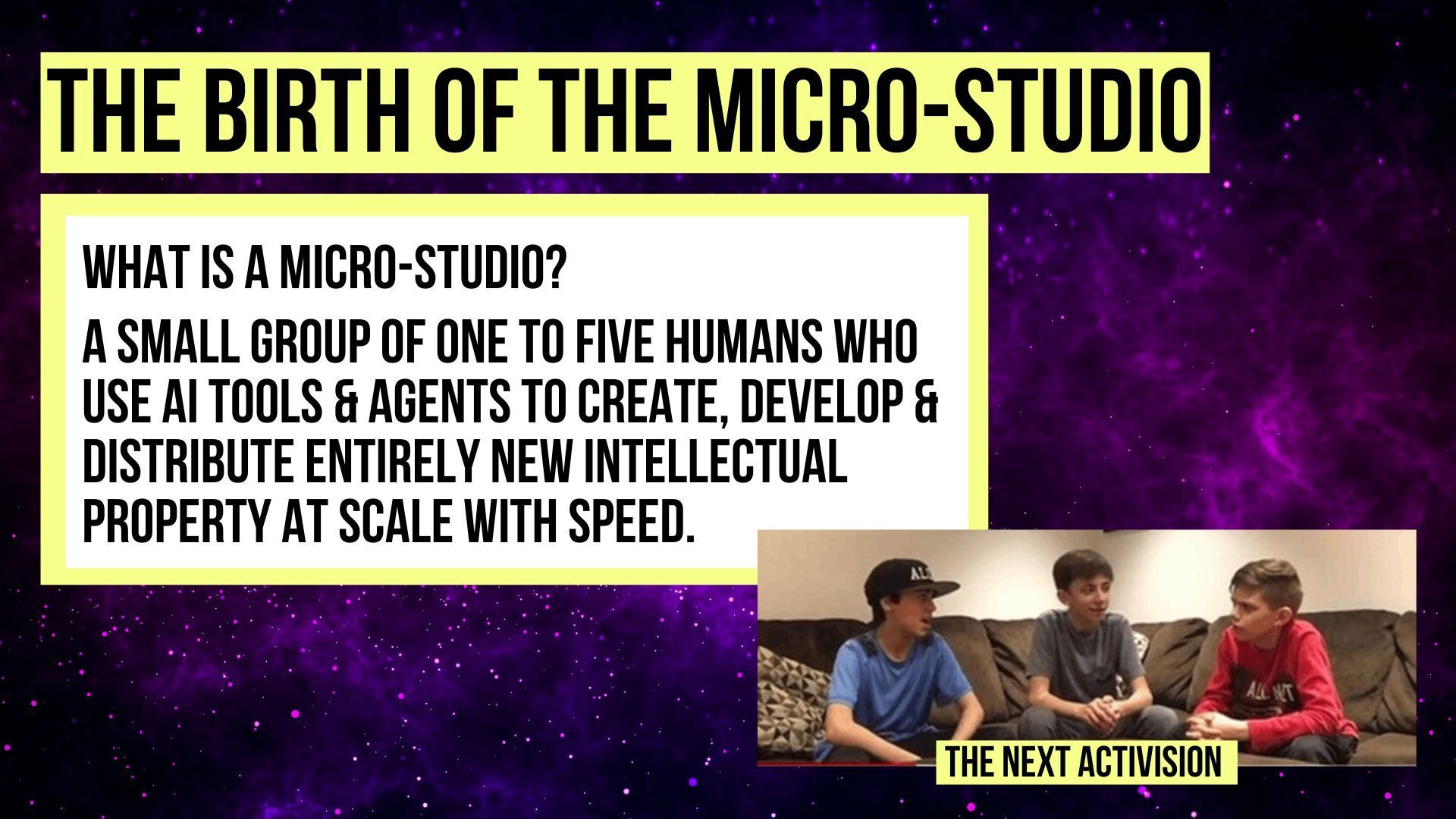Today on AI For Humans:
Google’s Vibecoding Future
OpenAI’s Upcoming AI Music Tool
Plus, Sora 2’s Newest Prompt Hack
Love this newsletter? Forward it to one curious friend. They can join in one click.
Welcome back to the AI For Humans newsletter!
This week, I got a chance to speak at a very interesting event for my friends at Edenic who are thinking deeply about how AI will effect the future of videogames. Obviously, with my work at AndThen, I’m very interested in this as well.
Then, I saw the following tweet from Google’s Logan Kilpatrick and thought it might be time to chat here about the current state of vibecoding and what comes next.
Maybe the best question to ask here is: Should everyone vibecode video games? Or maybe even better, why should anyone vibecode anything?
First, what is vibe coding now?
At this point, I’m going to assume that you’ve heard the word ‘vibecoding’ and might even have very specific thoughts about it.
Famously coined by AI engineer/teacher Andrej Karpathy, ‘vibe coding’ has become a catch-all term for talking to AI models and getting them to write the code for you. Sometimes with your voice, sometimes via chat.
So far, the results of vibecoding have been mixed. A LOT of people got into the idea of making games a few months back when famous vibecoder Levelsio made a multi-player flying sim that was pulling in $72k a month in ads.
Of course, the above kind of fizzled out over time (it was a pretty simple game) and there’s been some blowback on not only major security issues with vibecoding but also generally how hard it has been to do for the average user.
Enter Google’s new AI Studio vibe coding experience…
Then, this week Google dropped the following:
While the announcement got steamrolled by ChatGPT Atlas (OpenAI’s new agentic browser), this might be a bigger deal overall and why Logan tweeted what he did above.
I encourage everyone who has a Google account to go and give this a try right now (well, actually finish reading this and THEN give it a try). Come up with a very simple idea and see how Google’s tool does.
It’s pretty remarkable how often it can one-shot (aka in one round of back-and-forth) simpler ideas. “Interior Weather Generator” is a quick example I threw together while writing this using Nano-Banana to generate weather inside of your home.
Is this simple? Yes, of course. I mean I thought of it AND ‘coded’ it in under five minutes.
However, you can also see a world where millions of people (especially kids) start working with tools like this (especially ones that just work) and you begin to see a future with a lot more apps and games.
Of course, Google’s tool is far from the first vibecoding app. There’s been a plethora of them on the market, including one literally called Vibe Code App from friend of the show Riley Brown and team.
But Google’s size & impact on the market is BIG. And, as frontier models make coding work faster and better, you’re about to be seeing a lot more vibecoded games & apps in many different forms.
So what does this mean for video games exactly?
I love videogames and I’m not afraid to admit it.
It used to be hard to hold this position as an upstanding adult but now games are fully mainstream.
But the games industry is at a major crossroads. The huge mainstream game companies have seen a massive downturn lately as budgets have ballooned and multiple 100m+ games have been shelved due to lack of interest.
Meanwhile, we’re seeing a blossoming of Indie Games (single digit number of developers) succeed at lower price points.
They’re not all working but two recent games I played (Ball X Pit + Slots & Daggers) both gave me a ton of joy and I went out and sung their praises online. And both were under $15!
My hope is that the next iteration of vibecoding can open the door to new games and IP from new voices. There’s going to be a ton of growing pains (distribution and security both will be hard) but the opportunity here for smaller teams is pretty big.
That’s it for today. See you on Wednesday for the other side!
- Gavin
In this week’s AI For Humans: Is OpenAI’s New Browser ChatGPT Atlas Good?👇
3 Things To Know About AI Today
OpenAI’s Working on a Suno Competitor
The Information reported this week that Sam Altman and company are currently at work on an AI music generator & might be looking to compete with Suno going forward.
The music industry has been notoriously difficult when it comes to AI music but with the big recent news that Suno is actually printing money it’s prob worth it for OpenAI to explore.
I should prob write more about the AI music industry and why Suno is working right now. TBH, I’m not entirely sure why but these R&B rap covers aren’t hurting.
Oreos Using Custom GenAI Model To Cut Costs
Oreos have always been on the cutting edge of the advertising market (remember the classic ‘dunk in the dark’ SB tweet?) and now they’re showing large companies how to use Generative AI to make their workflow cheaper and faster.
According to Reuters, Mondelez (Oreo’s parent company) has invested $40m in a new custom AI model that allows them to generate short TV ads that could be premiere at this year’s Super Bowl.
Anthropic Researcher Gives The “AI Is Not a Bubble” Take
Um, I kind of forgot to do my second newsletter last week giving the take that AI isn’t a bubble. Sorry if you were waiting for it but the video below does a good job of giving the other side.
You might remember me linking to Julian Schrittwieser’s blog post about a month ago regarding his take on the AI bubble and me mentioning the differentiation between an economic bubble and an ability bubble.
Either way, this video does a great job of showing how AI’s capabilities aren’t slowing down any time soon.
We 💛 This: Sora 2’s AI Audrey Hepburn Watching “Movies”
I know people have feelings about Sora 2 but it is an incredible breeding ground for new creativity with AI video.
There are so many new formats that pop up there & I’ve found myself going back daily to get inspired & try a few myself.
There are also, of course, lots of people trying to find their ways around the IP restrictions the company has now placed on outputs. One of the most ingenious ones I’ve seen lately is having someone sit in a movie theater and watching films on screen.
I think this is the first iteration of this (Audrey watching Star Wars) but you can swipe through all the remixes and see some incredible fake versions of ‘real’ movies. Most of them look kind of like the original (the Cool Runnings one is a personal favorite) but are just slightly off.
It’s just another example of the weirdness of AI video and watching the machines interpret the sorts of requests we give it.
Are you a creative or brand looking to go deeper with AI?
Join our community of collaborative creators on the AI4H Discord
Get exclusive access to all things AI4H on our Patreon
If you’re an org, consider booking Kevin & Gavin for your next event!



